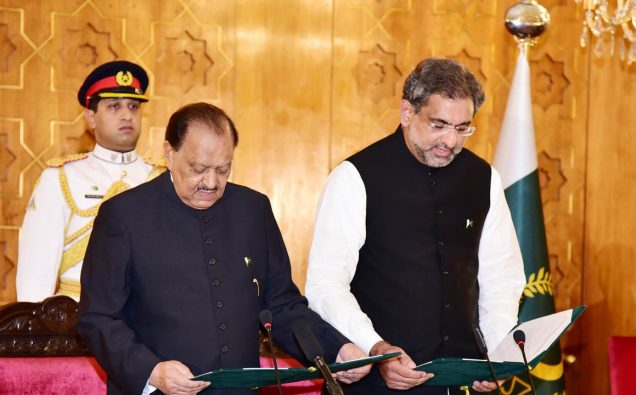
Interim Prime Minister Shahid Khaqan Abbasi wants to fix some of the longstanding frictional relationships in Pakistan’s governance system including civil-military equation.
In an interview with The New York Times before taking oath of office to fill the prime ministerial gap following Nawaz Sharif’s ouster in Panamagate corruption scandal, Abbasi said he is free to take decisions.
He claimed that he would not function as a “bench warmer” for Punjab Chief Minister Shahbaz Sharif, whom PML-N has nominated for the post of prime minister.
His first order of business, Abbasi pledged, would be to improve the executive’s relationship with the military and the judiciary.
“There are certain issues here which I cannot reconcile with, the way our whole system operates, the relationship between the judiciary and the executive, within the executive, the civil-military relationship,” Abbasi was quoted as saying.
“I think there are issues which do not allow governments to perform here, and the country is suffering,” he added. “My aim will be to contribute to fixing those anomalies.”
He did not specify what steps he would take, but said he preferred “engagement” over a “politics of confrontation.”
“I think there is room for improvement,” Abbasi said when asked whether smoothing civil-military relations would be part of his agenda.
“The relationship is functional, and I think there is a need to define it more fully through engagement.”
“The first thing to realize is that we are all on the same side,” he said, referring to the civilian government and the military. “I think we need to reinforce that realization.”
Abbasi criticized the Supreme Court decision that disqualified Sharif as an extremely narrow legal argument. He declined to speculate on why the court had made such a decision with “no evidence,” according to the Times, but said, “We don’t accept it, the people don’t accept it.”
“If the courts operate under public pressure and media pressure, then God help us all. I would then not go to court but pray for justice,” Abbasi said.
















